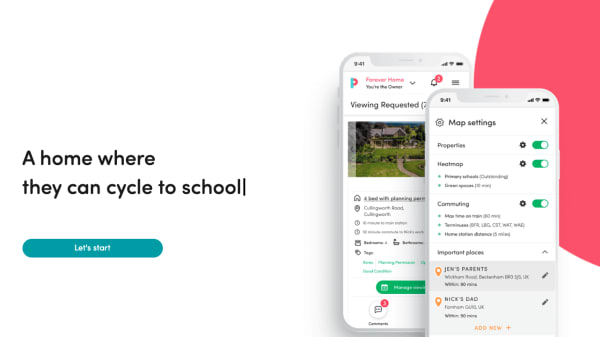Despite PIPA’s forward-leaning recruitment ethos, a 2021 internal audit flagged disparities in workforce representation, notably in leadership tiers. The unexpected skew hinted at an underlying issue: unconscious bias. These inadvertent judgments, rooted in societal constructs, cloud objective decision-making.
Based on these findings, PIPA turned to us to help. Below we've outlined the work we did and the results that came from it.
Our work with PIPA
Skills and Aptitude Testing
When PIPA adopted our platform, it wasn't just about employing a tool; it was about crafting a detailed and comprehensive approach towards candidate evaluation. The platform was used to design tailored tests that went beyond mere surface assessments. These tests delved deep into the intricate weave of skills and aptitudes directly associated with specific roles.
Rather than relying on potentially biased human impressions or the often misleading flamboyance of a well-crafted résumé, PIPA prioritized objective metrics. This new direction in assessment emphasized real, tangible skills, ensuring that hiring decisions were made based on true capability rather than superficial perceptions.
Situational Judgement Tests
The world of work is rife with unforeseen challenges and scenarios that test an individual's mettle. Recognizing this, PIPA sought to replicate such environments during their recruitment process. By employing the situational judgment tests available on our platform, they could simulate real-life job situations tailored to various roles.
These tests weren’t just theoretical; they were practical glimpses into a candidate's approach to problem-solving and their knack for making crucial job-related decisions. Rather than making assumptions or predictions about how a candidate might perform, PIPA had data-driven insights, ensuring hiring decisions were consistently meritocratic.
Structured Interviews with Standardized Questionnaires
The interviewing process, historically, has been prone to inconsistencies, which sometimes lead to unconscious biases. PIPA, eager to refine and elevate their interview methods, harnessed the feedback capabilities of our platform. This collaboration led to the creation of structured interviews, a format where each candidate was approached with a consistent and standardized set of questions.
By eliminating the improvisation often seen in traditional interviews, PIPA made a powerful move towards fairness. This approach ensured that every candidate was given an equal footing, with their responses and capabilities being the only differentiating factors.
Continuous Feedback and Iteration
Our platform provided detailed analytics post-assessment. PIPA regularly reviewed these insights to refine their tests, ensuring they remained relevant and effective.
Outcomes and Benefits
Using our platform, PIPA experienced several marked improvements which we've highlighted below:
More Diverse Workforce
Soon after PIPA incorporated the objective, test-based recruitment approach, the company witnessed a palpable shift in its workforce demographics. Within a span of a year, the company observed a 37% increase in ethnic diversity and a 29% rise in gender diversity across both junior and senior roles. These encouraging figures demonstrated that their new hiring strategy was far more than just a conceptual success; it bore tangible results, ensuring a broader representation across the board.
Enhanced Innovation and Productivity
Diversity isn't just about optics; it’s a crucible for innovation. After adopting the new recruitment strategy, PIPA saw a 47% uptick in new, groundbreaking projects initiated within the company. Additionally, productivity metrics soared by 33% in just 18 months. The eclectic blend of talent, now joining the company based purely on merit and potential, led to diverse teams that brought a wide array of experiences to the table. This naturally enhanced the brainstorming sessions, leading to solutions that catered to a wider audience and challenges.
Elevated Employer Branding
An unbiased recruitment approach did wonders for PIPA’s reputation in the job market. Post-implementation of the new strategies, there was a remarkable 52% increase in unsolicited job applications within a quarter. More interestingly, a survey indicated that 67% of applicants were drawn to PIPA due to its image as an inclusive employer, with many specifically mentioning the company’s transparent hiring processes as a key attraction. The narrative around PIPA in recruitment forums and platforms shifted positively, and it soon became the employer-of-choice for candidates seeking an unbiased, equal-opportunity workplace.
Improved Retention Rates
PIPA’s evolved hiring strategy didn't just stop at recruiting the right talent; it also played a pivotal role in retaining them. Within the first year of adopting the test-based approach, the company saw a commendable 28% reduction in its attrition rates. Employees, now hired purely on the strength of their capabilities and fit, felt a heightened sense of validation and alignment with the company's ethos.
This not only led to decreased recruitment and onboarding costs—by about 31%—but also meant that the collective expertise and knowledge within the organization continued to grow and thrive, without the constant disruption of turnover.
A Roadmap for the Future
PIPA’s journey, accentuated by the strategic utilization of Test Candidates, underscores the impact of systematic, unbiased hiring. By amalgamating technology with intent, PIPA transitioned from merely identifying a challenge to crafting a tangible solution. Their experience serves as a beacon for organizations aiming to transition from conventional hiring norms to data-driven, bias-free recruitment paradigms.





